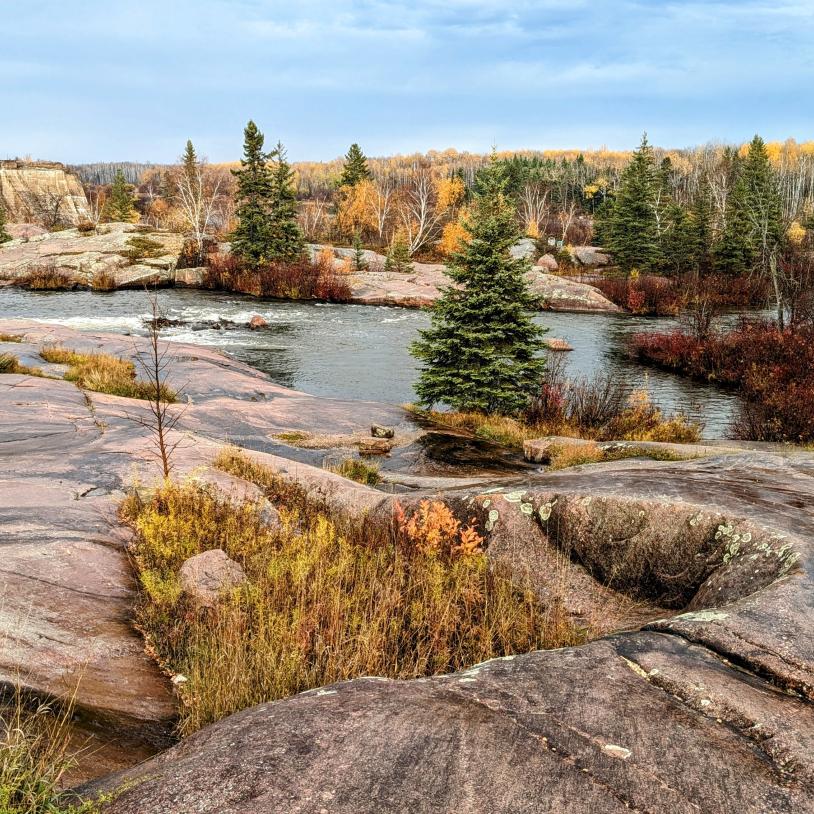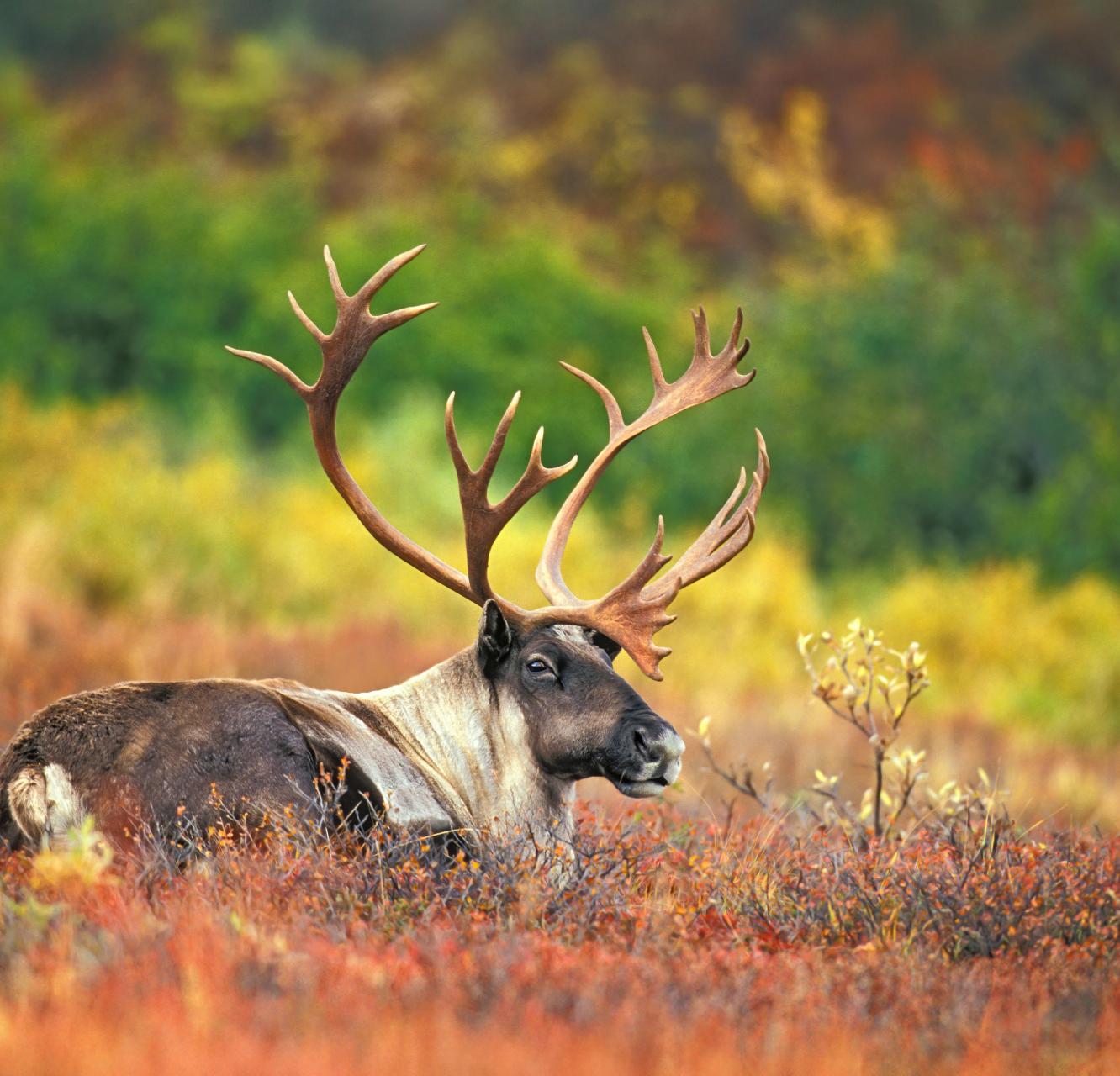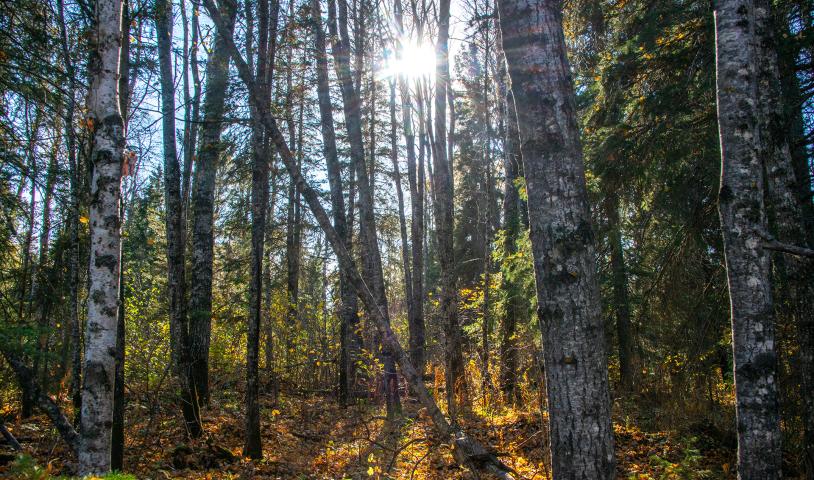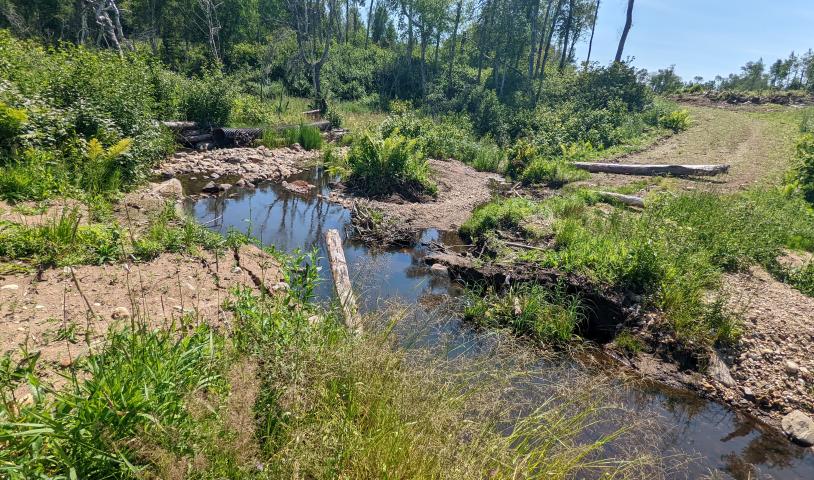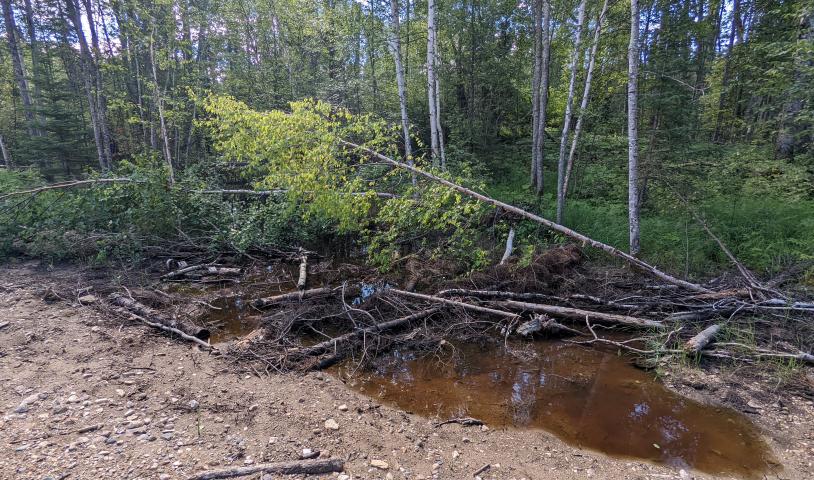Tembec Divisional Forester in Washington Post article, boasting that Tembec is protecting forest areas, lowering emissions from Pine Falls plant.
Wednesday, February 21, 2007
Letter to the Editor in response to the February 22, 2007 Washington Post article "In Far North, Peril and Promise: Great Forests Hold Fateful Role in Climate Change"
The Washington Post charges hundreds of dollars even for a non-profit organization to reprint their articles. You can find the February 22 article entitled “In Far North, Peril and Promise” online at washingtonpost.com.
Here's a climate change joke that's not funny:
What's one of the biggest causes of global warming in the forestry sector?
Hot air spewing from forestry company spokespersons trying to say how environmentally sound their operations are.
I told you it wasn't funny.
This marks the third time in the last month that statements made to the media by Tembec, a huge multinational logging corporation, were so glaringly inaccurate that they needed to be corrected. A pattern is becoming evident.
The highest-ranking forester in Tembec's Pine Falls, Manitoba operation is credited with saying Tembec "has set aside 12 percent of its 2 million-acre logging forest", protecting it from logging. This is a half-truth at best, if not an outright lie. Tembec's voluntary protection accounts for a mere 0.6 percent of it's forestry area, according to figures from Tembec's own website. Tembec 'setting aside' forest happens by force of law.
The truth is Tembec recently refused to support protecting a significant amount of a special wilderness river, the Manigotagan, as requested by a majority of people in the province. In 2004 the government finally passed legislation to protect the river. Tembec's contempt for the wishes of Manitobans continues today, as they are taking advantage of a loophole in protection to log near the Manigotagan River. Further examples of forests Tembec should have set aside include the proposed Springer Lake Ecological Reserve, an area rich in rare species and biodiversity, which Tembec stated they would preserve yet instead scheduled for clearcutting this winter. Tembec also has stated plans, posted on their website, to log the calving grounds of a high-risk herd of threatened woodland caribou, an animal which is protected in Manitoba.
Each one of these forests would have qualified as a good candidate area to "set aside" voluntarily. What makes Tembec's logging decisions so shameful and atrocious is that these areas are all on public land…and within Nopiming Provincial Park. Would anyone think it right, in this day of rapidly diminishing wild spaces, to log a State Park? In Canada, Tembec would.
One more misleading statement from Tembec needs clarification. The figure of a near 50% reduction in emissions from 1990 levels is accurate and seems admirable. What isn't mentioned, especially remiss in an article which touches on the detrimental effects of dirty coal burning, is the fact that the Pine Falls plant continues to burn coal to make pulp, as it has for 82 years. Looking closer at Tembec's boast, even after the recent pollution reduction the Pine Falls operation is still the third-largest polluter in the province.
Stopping logging Manitoba's parks is a step towards a healthy future for the entire world, and will preserve biodiversity, provide climate mitigation, clean air, and clean water. Tembec can be an environmental hero by taking this step voluntarily, and living up to their claim in this article. Sound forestry operations are necessary and possible. We should expect accountability and responsible actions in our forests and public lands. We certainly don't need any more hot air.
Eric Reder
Manitoba Campaign Director
Western Canada Wilderness Committee
